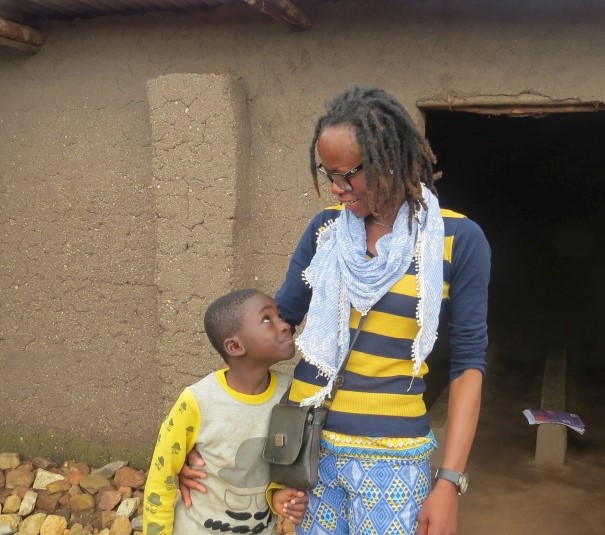Mamale Eureka Exode* loves football so much, that she named her first born son, Messi, after the Barcelona football team mega player Lionel Messi. Exode, from the Democratic Republic of Congo fled to Malawi in 2012. At that time, she was a house wife and had begun to get active in politics, joining the opposition party, Union for Democracy and Social Progress (UDPS). She attended demonstrations in support of the party and ended up being arrested and beaten. Her husband, who was a journalist wrote a story about the incident. A few days after it was published, Exode was cooking dinner when she heard some men break into the house and start shouting at her husband who was watching television in the living room. She heard him shout back and then heard gunshots. The frightened Exode managed to jump out of the kitchen leaving her 2 year old son, Messi, sleeping upstairs. After a few hours hiding at friend’s house, she got some neighbors to check on Messi and her husband. They found her husband had passed away and managed to get the still sleeping Messi out of the house and reunite him with his mother. She fled the next day, to get as far away as she could from the DRC, where she felt her life was in danger.
Once she arrived in Dzaleka, she did what she could to keep busy. She took courses in auto mechanics and a found a job cleaning cars at the garage in the camp. She planted corn in a small patch of ground next to her house to sell. As she loved football so much she thought the others in the camp probably would too, but there was only a few places to watch the games and they were located quite far from her area of the camp. It was difficult for people to go watch the games in the evenings and then return home safely.
So Exode decided to sell the five bags of corn she grew and use the money to construct a small “cinema” where people could come and watch the Africa Cup of Nations, Africa’s largest football tournament. She spoke to a Congolese man who ran a small shop and got him to invest in her business, loaning her money to hire a generator. She managed to install satellite TV and get a subscription during the tournament. She charged 200 kwacha (about 50 cents US) per match and ended up making enough money to cover her costs and make a small profit.
“I would love to grow the business, and install solar panels and expand to showing other sporting events,” she says.
